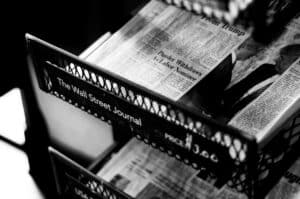The role of the editor – maintaining the unique voice of the author
At LifeBook, my role as an editor is not typical nor entirely conventional when it comes to that kind of work. Yes, quality control is important, but, unlike conventional editing, it is not my place to decide what is included or left out of a LifeBook. That decision is down to the author.
Each LifeBook reflects the author’s life story as they see it and it is important that everything they wish to include is there. As a result, I will never remove any content from an autobiography without permission from the author. That is not to say I won’t highlight any issues that I spot—for example, if one particular story is included twice—but the ultimate say over what goes in lies with the author.
It is my job, as an editor, to make sure that every LifeBook reads well while maintaining the unique voice of the author. Some authors like a formal tone, others may prefer a colloquial approach, but whatever their preference, I will edit within that remit.
In that way, our LifeBooks truly reflect each author’s idiosyncrasies (and we all have them) in terms of speech and personality. By using this approach, we can make every author’s LifeBook personal to them, rather than using a one-size-fits-all way of doing things.
Of course, we choose our ghostwriters very carefully, and part of my job is doing just that by screening them before they are given a live project. However, even the best writers need a ‘second pair of eyes’ and that is where I step in.
I read it as if I just picked up the book
Think of me as the reader who has just picked up the book. Will I understand the story? Will I find it a pleasant and enjoyable read? Does everything make sense? Do the words flow? It is up to me to ensure that the answer to these questions is ‘yes’. If the answer is ‘no’, I will then do the work necessary to change that ‘no’ to a ‘yes’.
In addition, I will also do a spot of fact-checking along the way. Of course, I can’t check those things that are peculiar to the author, their family and associates, but I can make sure that general statements of fact are correct, such as the spelling of place names, dates of important events and so on.
It’s worth making this extra effort because it is the kind of thing that adds polish to a book to give a truly professional finish.
If you’ve ever wondered what an editor does, think of it as being a kind of quality control; in other words the type of job that makes sure that everything is how it should be. On the other hand, you might think you know what an editor does—surely they simply edit or remove extraneous, unwanted material, don’t they?
Editing is not proofreading
Many people confuse editing with proofreading but these are two very different disciplines. While editing looks at the structure, content and meaning of the written word, proofreading looks primarily at the accuracy of spelling and punctuation.
This work forms another aspect of my job when each LifeBook nears completion. At this point, the book will be in the form of a draft typeset version; in other words, it will no longer be a simple manuscript but will have been laid out in a way to give it the appearance of the finished product.
This enables me, now as a proofreader, to spot any typographical errors, incorrect punctuation, and inconsistencies within the text that may have been missed at the editing stage. It also allows me to spot any mistakes in the typesetting process itself, such as missing text, slipped images, wrong pagination, or problems with the actual layout of pages.
So that is my job in a nutshell. Of course, I work closely with the project manager, ghostwriter, interviewer, and typesetter of each book and as a team, we are able to ensure that, at the end of every project, our authors are delighted with that very special LifeBook—their own personal story—which they now hold in their hands.

– Halima, LifeBook Editor –




